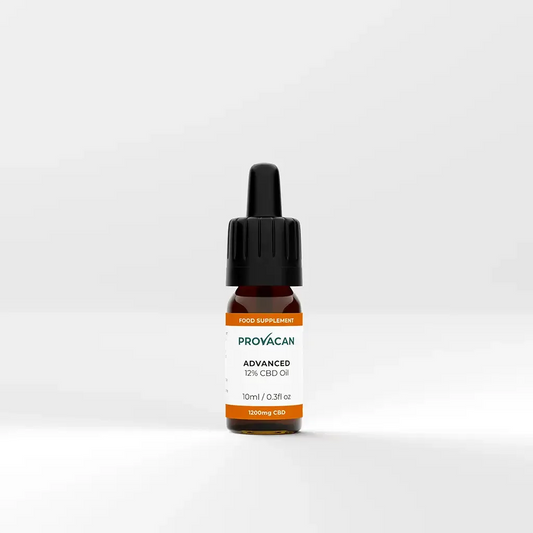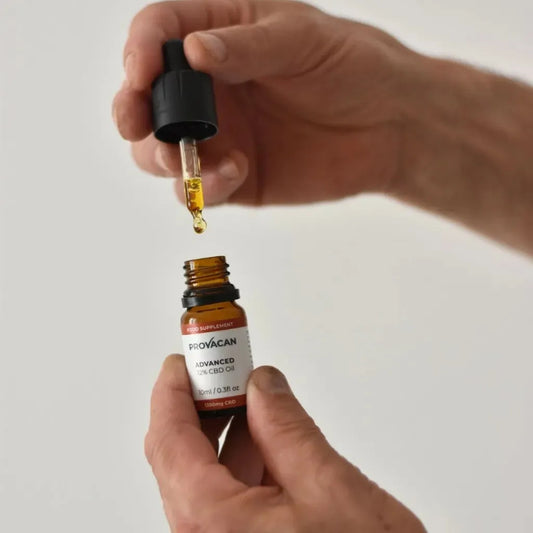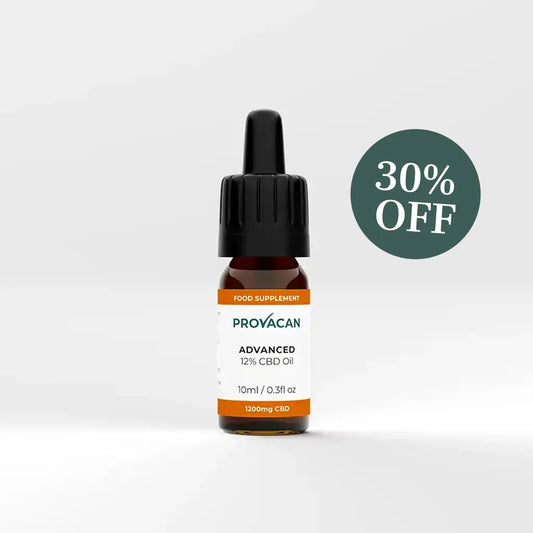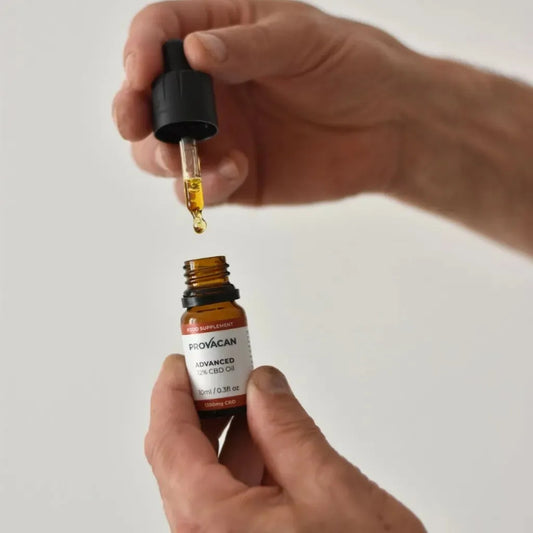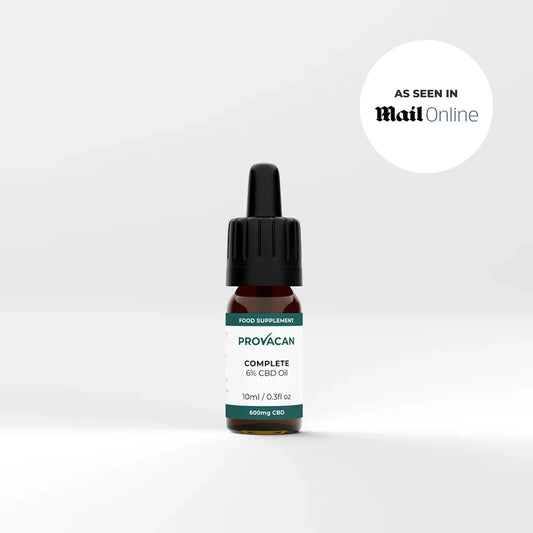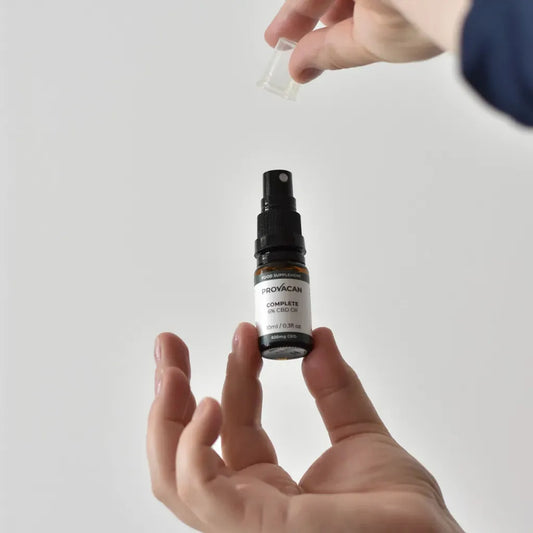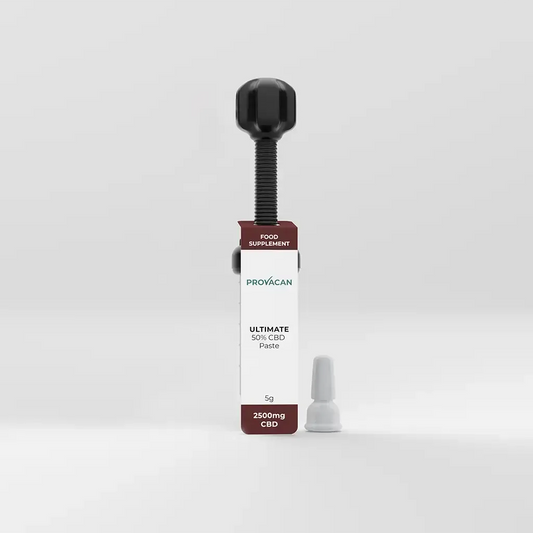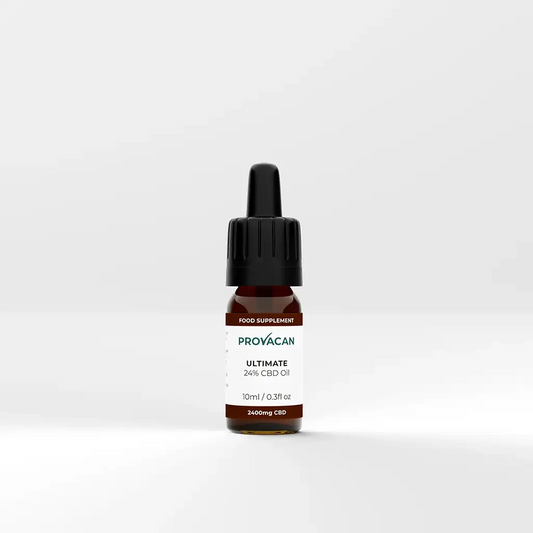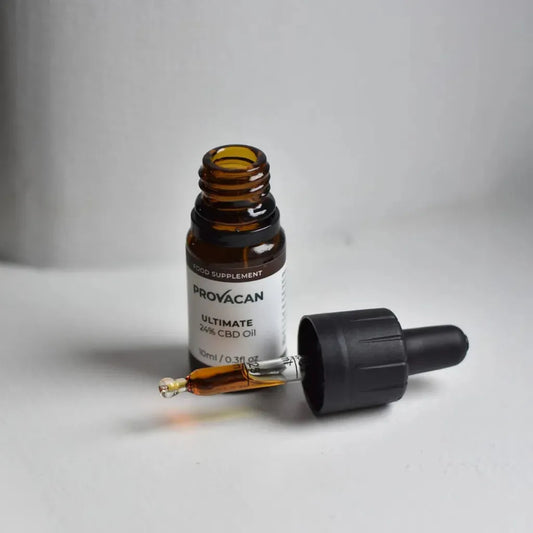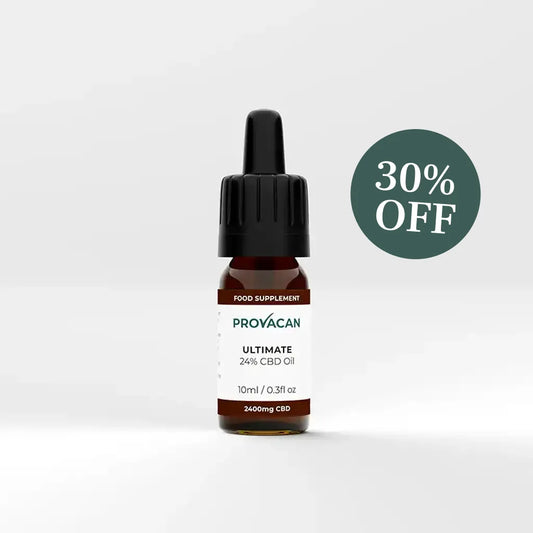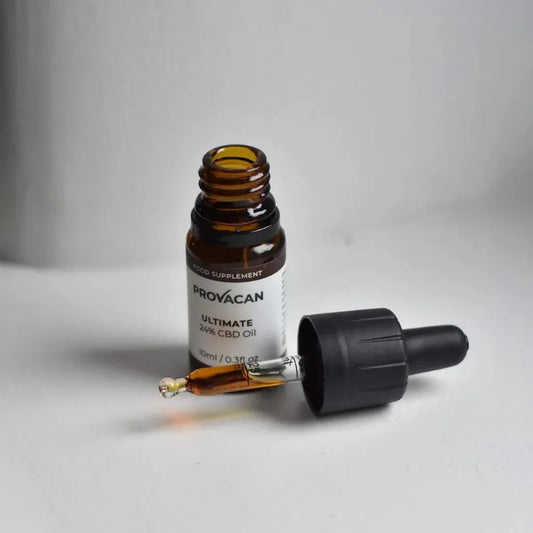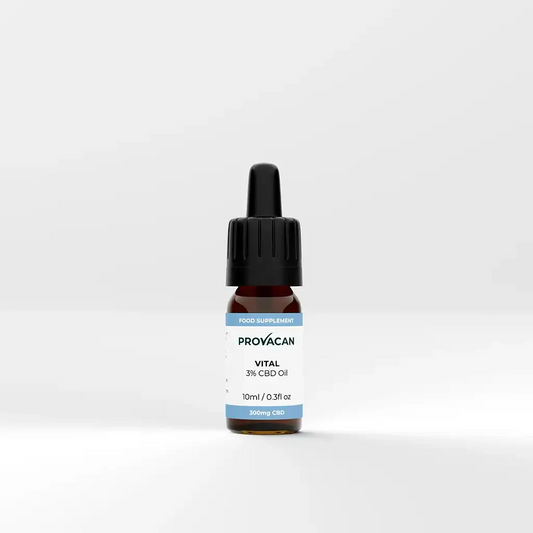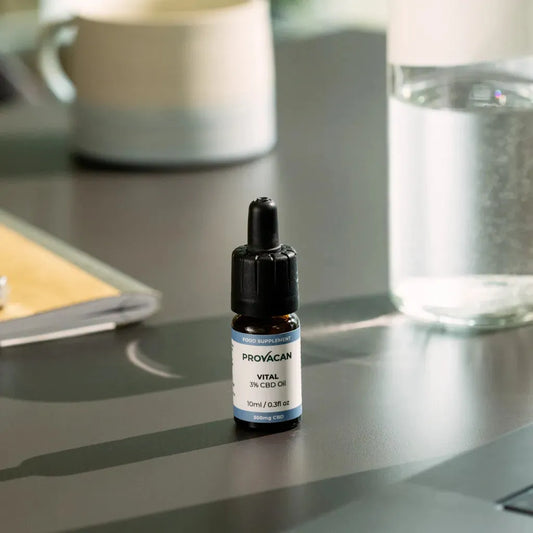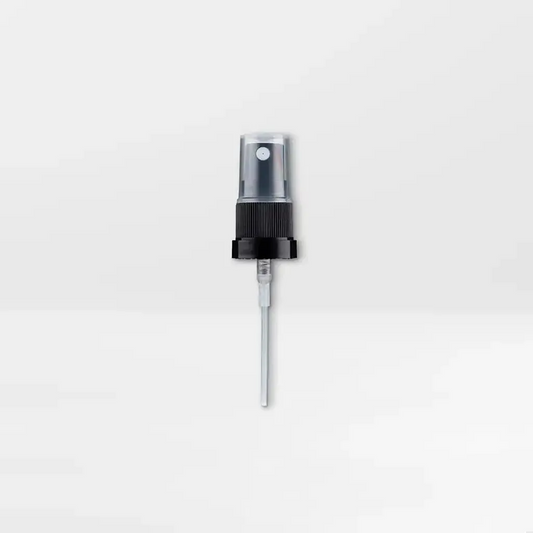Collection: CBD Tinctures And Oils
CBD tinctures and oils have emerged as frontrunners in the natural health market lately. These potent formulations, derived from the hemp plant, have captivated the interest of wellness enthusiasts and CBD consumers alike, thanks to their myriad of reported health benefits ranging from pain relief to improved mental health.
-
Book your free consultation
Get expert guidance on natural ways to support sleep, stress, and more.
BOOK NOW
-
Provacan Advanced CBD Oil | 1200mg / 12% CBD, 10ml
4.7 / 5.0
(215) 215 total reviews
Regular price £49.99Regular priceUnit price / per -
Provacan Advanced CBD Oil | 1200mg / 12% CBD, 10ml - 3 Months Subscription
5.0 / 5.0
(3) 3 total reviews
Regular price £104.97Regular priceUnit price / per£149.97Sale price £104.97Sale -
Provacan Complete CBD Oil | 600mg / 6% CBD, 10ml
4.7 / 5.0
(198) 198 total reviews
Regular price £34.99Regular priceUnit price / per -
Provacan Ultimate CBD Oil Paste | 2500mg / 50% CBD, 5g
4.7 / 5.0
(267) 267 total reviews
Regular price £89.99Regular priceUnit price / per -
Provacan Ultimate CBD Oil | 2400mg / 24% CBD, 10ml
4.7 / 5.0
(165) 165 total reviews
Regular price £79.99Regular priceUnit price / per -
Provacan Ultimate CBD Oil | 2400mg / 24% CBD, 10ml - 3 Months Subscription
4.5 / 5.0
(6) 6 total reviews
Regular price £167.97Regular priceUnit price / per£239.97Sale price £167.97Sale -
Provacan Vital CBD Oil | 300mg / 3% CBD, 10ml
4.6 / 5.0
(124) 124 total reviews
Regular price £24.99Regular priceUnit price / per -
Spray Nozzle for CBD Oil
3.5 / 5.0
(8) 8 total reviews
Regular price £1.99Regular priceUnit price / per
Key Takeaways:
- CBD Essentials: CBD tinctures and oils are potent formulations derived from the hemp plant, offering reported health benefits from pain relief to enhanced mental health.
- Composition & Production: The main difference between CBD oils and tinctures lies in their composition and production process, influencing their use and absorption methods.
- Provacan Quality: Provacan is dedicated to providing superior CBD products, crafted with scientific research and precise extraction methods to ensure unmatched purity, potency, and effectiveness.
What Are CBD Tinctures and Oils?
CBD, or cannabidiol, is a naturally occurring compound found in the cannabis plant. Unlike THC, another well-known compound from the same plant, CBD does not have psychoactive effects, meaning it won't make you feel "high." This characteristic has contributed to its widespread acceptance and use.
CBD Tinctures vs. Oils:
- CBD Tinctures: These are alcohol-based extracts. The process involves soaking the cannabis plant in high-proof alcohol, then applying low heat over an extended period. This extracts the active compounds from the plant, which are then mixed with a carrier oil or a flavouring agent. Tinctures often come with a dropper for easy dosing and are typically taken sublingually (under the tongue) for fast absorption.
- CBD Oils: These are oil-based extracts. CBD is extracted from the cannabis plant and then mixed with a carrier oil like hemp seed oil or coconut oil. CBD oils are also taken sublingually, but they can be added to food and drinks or applied topically.
The Benefits of CBD Tinctures and Oils
CBD tinctures and oils offer a range of potential benefits, making them a popular choice for those looking to enhance their wellness routine.
Support for Mental Well-being
CBD has been studied for its potential to alleviate symptoms associated with anxiety and stress. It interacts with the body’s endocannabinoid system, which plays a role in regulating mood and stress responses. Users often report feeling calmer and more balanced after taking CBD, making it a useful tool for managing daily stress.
Pain Relief
One of the most common reasons people turn to CBD is for pain management. Research suggests that CBD can help reduce inflammation and interact with neurotransmitters involved in pain regulation. This makes it a promising option for those dealing with chronic pain conditions, such as arthritis or muscle pain.
Improved Sleep
Poor sleep can have a significant impact on overall health and well-being. CBD is known for its relaxing properties, which can help improve sleep quality. By reducing anxiety and promoting a sense of calm, CBD may help users fall asleep more easily and stay asleep longer.
Neuroprotective Properties
Some studies have explored CBD’s potential in supporting neurological health. This includes its use in managing conditions like epilepsy and multiple sclerosis. While more research is needed, early findings are promising and suggest that CBD may have protective effects on the brain and nervous system.
Anti-inflammatory Effects
Inflammation is a common factor in many chronic conditions, from heart disease to autoimmune disorders. CBD’s anti-inflammatory properties are well-documented, making it a potential ally in managing conditions where inflammation plays a central role.
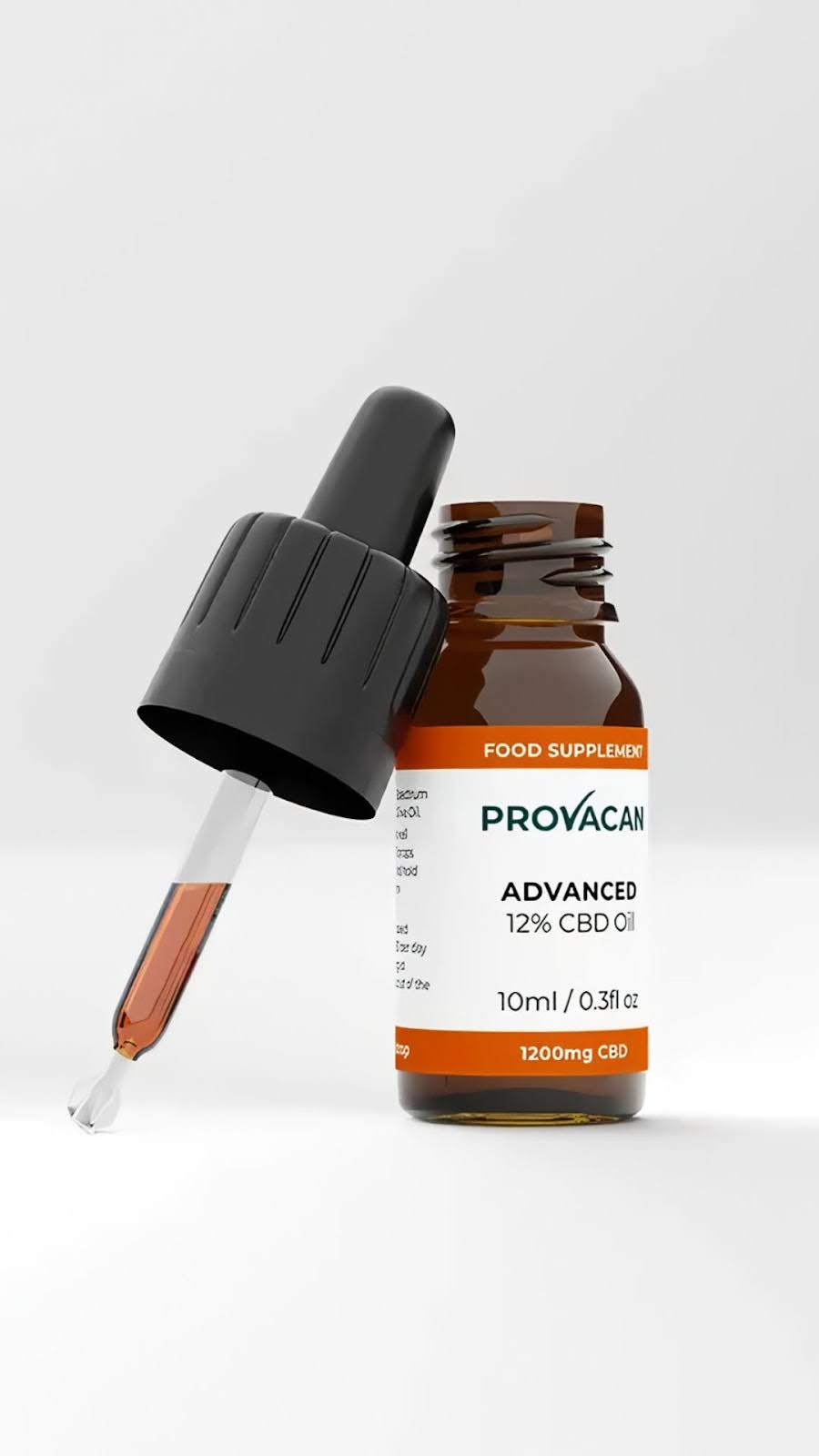
How to Use CBD Tinctures and Oils
The effectiveness of CBD tinctures and oils largely depends on how they are used. Here are some guidelines to help you make the most of these products.
1. Sublingual Administration: The most common way to take CBD tinctures and oils is sublingually. Place the desired amount of CBD under your tongue and hold it there for about 60-90 seconds before swallowing. This method allows the CBD to be absorbed directly into the bloodstream through the mucous membranes in the mouth, leading to faster effects.
2. Adding to Food and Drinks: CBD oils can be easily incorporated into your diet by adding them to foods and beverages. Whether it’s mixing a few drops into your morning coffee or adding it to a salad dressing, this method provides a convenient way to enjoy the benefits of CBD. However, it’s worth noting that when consumed this way, the CBD is processed through the digestive system, which may slow the onset of effects.
3. Topical Application: While tinctures are typically consumed orally, CBD oils can be applied directly to the skin. This is particularly useful for targeting localised pain or inflammation. Simply massage the oil into the affected area for relief.
4. Consistent Use: For the best results, consistency is key. Incorporating CBD into your daily routine ensures that you’re maintaining steady levels of cannabinoids in your system, which may enhance its effectiveness over time.
5. Dosage Considerations: Finding the right dosage is essential to achieving the desired effects. Start with a low dose and gradually increase it until you find what works best for you. Keep in mind that factors like body weight, metabolism, and the severity of symptoms can influence how much CBD you need.
Suggested Dosage Ranges:
- Mild Effects: 5-10mg of CBD per day.
- Moderate Effects: 10-30mg of CBD per day.
- Stronger Effects: 30-50mg of CBD per day.
Why Choose Provacan’s CBD Oils?
Provacan has established itself as a leading provider of CBD products, known for its commitment to quality and transparency. Here’s why their CBD oils stand out:
1. Full-Spectrum Hemp Extract: Provacan’s CBD oils are made using full-spectrum hemp extract, meaning they contain a wide range of cannabinoids, terpenes, and flavonoids. This is important because these compounds work together in what’s known as the “entourage effect,” enhancing the overall effectiveness of the CBD. By choosing a full-spectrum product, you’re getting the most out of what the hemp plant has to offer.
2. Rigorous Testing: All Provacan products undergo rigorous third-party testing to ensure they meet the highest standards of purity and potency. These tests check for the presence of any contaminants, such as pesticides, heavy metals, and solvents, ensuring that what you’re consuming is safe and of the highest quality.
3. Range of Potencies: Provacan offers a variety of CBD oil strengths, from 300mg to 2400mg, allowing you to choose a potency that matches your needs. Whether you’re new to CBD or an experienced user, there’s an option available for you.
4. Commitment to Research: Provacan is actively involved in research partnerships with leading institutions to advance the understanding of CBD and its potential benefits. This commitment to science and innovation is reflected in the quality of their products.
5. Transparent Labelling: Provacan’s labelling provides clear and accurate information about the contents of each product, including the exact amount of CBD per serving. This transparency makes it easier for users to make informed decisions about their CBD usage.
Comparing CBD Tinctures and Oils: Which Is Right for You?
While CBD tinctures and oils are often used interchangeably, there are differences that might make one more suitable for your needs than the other.
Tinctures:
- Alcohol-Based: Suitable for those who prefer a faster absorption rate.
- Taste: Often flavoured to mask the strong taste of CBD, making them more palatable for some users.
- Versatility: Can be mixed with food or drinks, though the alcohol base may alter the flavour.
Oils:
- Oil-Based: Offers a more natural option, often using carrier oils like MCT or hemp seed oil.
- Taste: The natural taste of hemp may be more prominent, though it’s often described as earthy and mild.
- Topical Use: Oils are better suited for direct application to the skin, providing versatility in how they are used.
Choosing Between the Two:
- If you prefer a product with a faster onset of effects, a tincture might be the better choice. However, if you’re looking for versatility in usage and a more natural product, an oil could be more suitable. Ultimately, it comes down to personal preference and how you plan to use the product.
Final Thoughts
CBD tinctures and oils emerge as integral components in the wellness routines of those who prioritise health and natural supplements. At Provacan, we stand at the forefront of this wellness movement, offering a line of CBD oils that epitomise the highest standards of purity, potency, and efficacy.
For individuals seeking to incorporate the benefits of CBD into their lives, Provacan provides a trustworthy and scientifically substantiated option. Our products embody our motto, "Committed To Your Well-Being," and are designed to meet the needs of wellness-conscious consumers across the UK. By choosing Provacan, you are selecting a product of unparalleled quality and supporting a brand that prioritises your health and wellness.
Sources:
- Blessing, E. M., Steenkamp, M. M., Manzanares, J., & Marmar, C. R. (2015). Cannabidiol as a potential treatment for anxiety disorders. Neurotherapeutics, 12(4), 825-836. https://doi.org/10.1007/s13311-015-0387-1
- Pisanti, S., Malfitano, A. M., Ciaglia, E., Lamberti, A., Ranieri, R., Cuomo, G., ... & Bifulco, M. (2017). Cannabidiol: State of the art and new challenges for therapeutic applications. Pharmacology & Therapeutics, 175, 133-150. https://doi.org/10.1016/j.pharmthera.2017.02.041
- Iffland, K., & Grotenhermen, F. (2017). An update on safety and side effects of cannabidiol: A review of clinical data and relevant animal studies. Cannabis and Cannabinoid Research, 2(1), 139-154. https://doi.org/10.1089/can.2016.0034
- European Monitoring Centre for Drugs and Drug Addiction (EMCDDA). (2020). Cannabidiol (CBD) critical review report. https://www.emcdda.europa.eu/publications/technical-reports/cannabidiol_en
- Grinspoon, L. (2020). Cannabidiol (CBD) — what we know and what we don’t. British Journal of Pain, 14(2), 73-81. https://doi.org/10.1177/2049463720902244
Collapsible content
What are CBD tinctures and oils?
CBD tinctures and oils are liquid extracts that provide a convenient way to consume CBD, a non-intoxicating compound found in the cannabis plant. They are produced by soaking hemp in a solvent, such as alcohol or a carrier oil, to extract the active compounds. These products are known for their potency and ability to deliver the benefits of CBD directly into the bloodstream.
How do CBD tinctures differ from CBD oils?
The main difference lies in the production process and consistency. CBD oils are made by infusing CBD with a carrier oil such as coconut or hemp seed oil. CBD tinctures, on the other hand, often use alcohol as a base. Tinctures may contain additional flavourings or herbal extracts, and are generally thinner in consistency than oils.
What are the benefits of using CBD tinctures?
CBD tinctures are praised for their fast absorption rate and ease of use. They can help support overall wellness, including maintaining healthy sleep patterns, managing everyday stresses, and promoting a sense of calm. The dropper included with tinctures allows for precise dosage, catering to individual needs and preferences.
How do you take a CBD tincture?
CBD tinctures are typically taken sublingually. You place the desired amount of drops under your tongue and wait 30-60 seconds before swallowing. This method allows the CBD to be absorbed directly into the bloodstream through the blood vessels under the tongue, offering quicker effects compared to ingestion.
Can CBD oils help with pain management?
Many individuals use CBD oils as part of their pain management strategy. While research is ongoing, some studies suggest that CBD may help by reducing inflammation and interacting with neurotransmitters related to pain perception.
What’s the correct dosage for CBD oil?
The ideal dosage varies among individuals, as it depends on factors like body weight, the condition being addressed, and individual body chemistry. Starting with a low dose and gradually increasing it until you find your optimal dosage is recommended. Always consult with a healthcare provider when in doubt.

